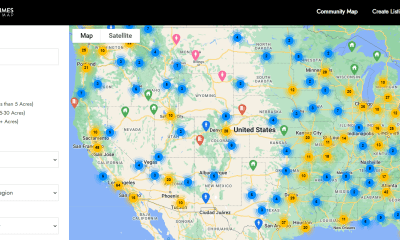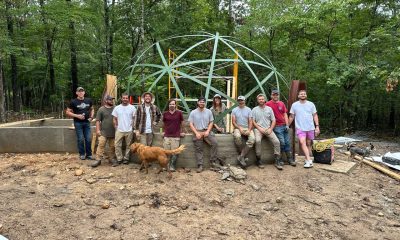Business
Overcoming The Beast that is Self Doubt
How does one mitigate the self doubt felt when starting a new business venture?

So you’ve decided to start a business. You’ve got a product or service in mind, you’ve got everything mapped out, and you’re excited about jumping in. Those dreams of finally severing the ties with (insert company you despise working for here) finally seem within reach. And then the self doubt begins.
When deciding to start a business, many people will inevitably fall victim to the ridiculous notion that in order to succeed they must create the best product known to man, or provide the best service that anybody has ever experienced. Although striving for excellence is a great trait to have and much better than the alternative, the idea that anything but the absolute best equates to failure is inherently false, and can do a lot of damage not only to your business, but yourself as well. I fell victim to this for a brief moment upon starting my business, and I’m going to share with you all how I navigated through the torrent of thoughts and emotions which boiled up at that time.
We live in a culture today that strives for perfection. You see it everywhere you look. Filters on every single camera, app, and video sharing platform. Mega corporations constantly telling you you’re not good enough, but their product will help you become better in some way. You’re not cool unless you have the newest phone, which is exactly the same as last years but with a larger price tag. If you’re reading this, you’ve probably broken through that spell and know it’s all nonsense. But the spell is by design, you can get a degree in it (Marketing), it is a multi billion dollar a year industry, and it is incredibly effective. When one is bombarded with both conscious and subconscious programming which tells them they are less than adequate, it eventually seeps in to the back of your mind and will manifest later in ways which many wouldn’t even correlate to the advertising.
Prior to the launch of my website, building my first product, or even knowing what it was that I was going to produce, the feelings of inadequacy crept in. And those feelings nearly stopped me from moving forward with something I was genuinely thrilled about making a reality. One day, while I was in the midst of building my shop, a thought popped into my head which both startled and unnerved me. “What are you doing all of this for? Nothing you’ve ever tried has worked out the way you wanted it to. You’re just wasting time. You’re broke, quit spending the little money you have on plywood and tools that you’ll never use. Give up”. And I nearly did. Were these thoughts a reflection of my woodworking ability? Absolutely not. I would consider myself a very decent woodworker by today’s standards. Were they because I know nothing about business, or building a website, or how to market my products? Couldn’t be that, as I did that years prior with a small business attempt making small batch beard care products. I searched for days trying to find the source of these thoughts which had taken ahold and were clinging on for dear life. Those few days were extremely trying, until I realized where it was all originating from.
I was indeed scared that I would fail miserably. And that fear was coming from the idea that I was, for some reason or another, contractually obligated to create a product that was superior to every comparable product in existence. As I think back to it now it’s quite funny, but at the time it was a sincere fear.
In today’s world people are starving. Starving for attention, starving for approval, starving for meaning and purpose. When one is existing in a state of mind where they’re not enough, it’s no far stretch of the imagination to conclude that they will prescribe that same inadequacy to every aspect of their life. I found myself falling victim to the “meaning and purpose” class of starvation. I had recently found my way home back to God, He had blessed my wife and I with a beautiful daughter, but I still felt like I was not living up to the call He put out. It is my belief that I somehow correlated the quality of the not yet decided upon products with the path God had ordained for me. As if there was a looming expectation of not only perfection, but grandeur, and anything less than that would be inexcusable. I was still tripping over cords and dropping tools on my feet while trying to build a shop, but in my head I was fighting battles against thoughts which were highly irrational.
Our daughter was around 8 months old when this happened. As a first time parent, I was enjoying every moment of this stage. She was becoming much more self aware, she was laughing hysterically, she was grabbing the spoon as it came towards her mouth because she wanted to try it herself. With each new milestone, I became more proud of her. While driving to the store one day, with a tear in my eye while thinking about how the last 8 months went by in a day, I had the revelatory realization that if I felt that much joy in my daughter for doing something as simple as holding a spoon, imagine how overjoyed God must be that I turned my entire life around, relinquishing the control all of my earthly desires had over me, and how I now want nothing more than to provide for my family. If I was that hurt when I had to use my dad voice to mildly scold my daughter when she yanked my beard harder than even the strongest man on earth could and she stuck her bottom lip out in response, how much hurt does God feel when millions of His children go down a path of conscious sin, or refuse to even attempt to live a life he would approve of? In that exact moment, I gained a much deeper understanding of God, of being a parent, of how those two are connected, and of how silly those feeling of inadequacy pertaining to business were. I didn’t care if my daughter stumbled while standing, and I did not expect her to go from crawling to running the first time she stood on her own. I was elated watching her grab hold of the couch and pull with all of her might until she was standing up, smiling and scanning the room to see if we had witnessed it. God does not expect perfection from day one either. Just improvement and a desire to do good. This calmed me tremendously, and I went back into the shop with a renewed and much stronger sense of optimism.
Do I make the best cutting boards on earth? Probably not. But I don’t need to, because my cutting boards are great, they’re affordable for the quality you’re getting, I’m very friendly with customers and those who support what I’m doing, and most importantly I’m trying and improving every day. If you’re starting a construction company, there is no stipulation that you must erect the finest house that has ever been built. Just build a good house that a family will call a home. We as humans are constantly over complicating things, as a result of decades of programming. Deprogram yourself, and realize it’s all nonsense. You don’t have to make the best product or provide the best service. Just make something good. Try. As people are starving for the aforementioned things, they are also starving for products that are simply good, and not made 6,000 miles away, and which will not break in 3 months. And they’re willing to pay a little extra for that quality. And in my experience they are delighted to support a small business here in the US who is doing just that. People are starving for service that is simply good. A short and friendly conversation with another real human being who happens to know how to fix your toilet or cut down the giant tree in your yard is not something that can be taught in marketing school.
As it turns out, you don’t have to recreate the wheel in order to succeed. You just need to sell a good wheel to someone who needs one.
One more word of advice, easily observed in the wild. In nature, the male lion may seem like he’s got it all, being the king. But he also has to risk his life fighting the other males who challenge him. If you desire perfection to the point of being the king of your industry, enjoy the endless lawsuits and ridiculous expectations from your customers that come with it. We recently saw many heads of the tech community testify before congress. What we didn’t see is the guy quietly running a small automotive shop in the country testifying before congress.
Do not let self doubt or irrational fear stop you from trying. You did not put that self doubt inside of your head. The people who don’t want you to dip into their billion dollar profits by starting your own business did. We need less mass production, and more of the masses producing.
Until next time bears. Onward!
-Woodshop Bear
Business
3000 Members In Our Business Group!: This Week On Our Community App!
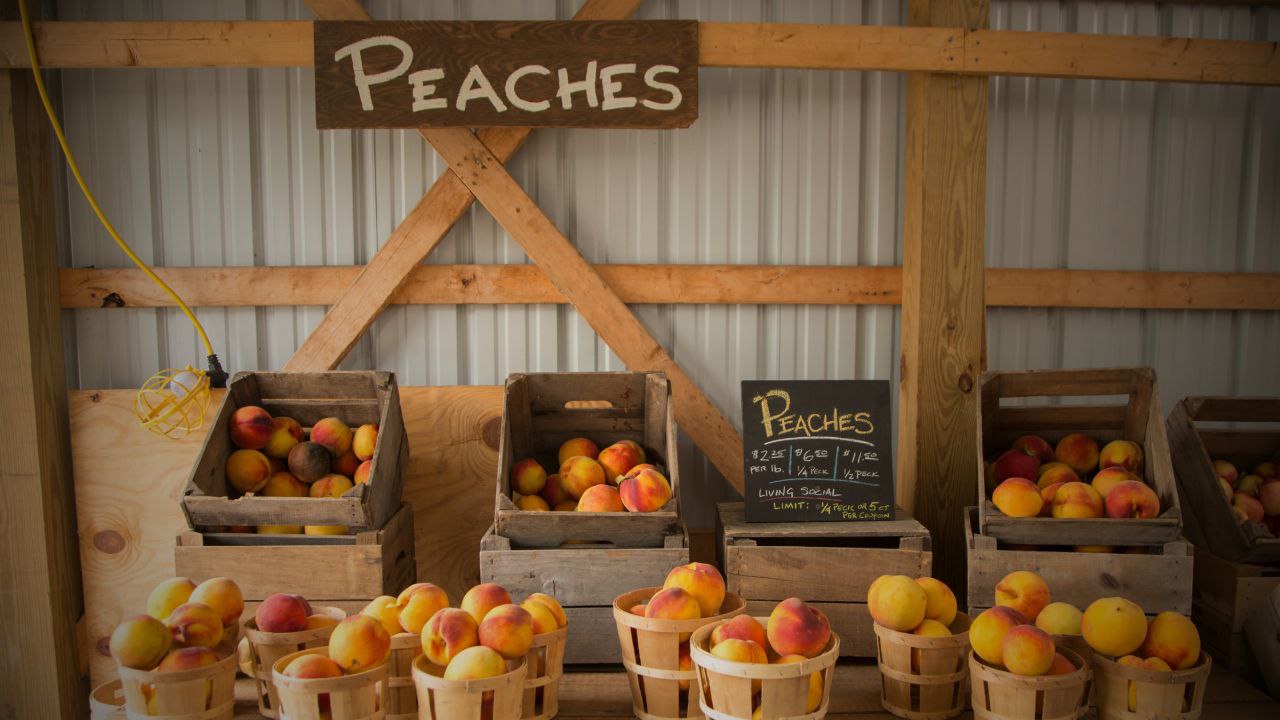
Our thriving business group hosts 3,000 members, from small solo entrepreneurs to developed companies. This week, we aim to give more exposure and introductions to the businesses of Beartaria.
We encourage the businesses of Beartaria to introduce themselves and what they do in the business group and the local state groups. We invite our community to jump into these groups to see what is going on!
This can help the wider community know that you are on the app and what you do.
As a community app that doesn’t do paid ads, lots of generic posts that just advertise your business can be a little bland.
Let’s add some value to it, here are some ideas that can help make a good introduction:
- What do you do?
- How did you get started?
- Where are you located?
- Why do you love what you do?
- What are your goals?
- How has Beartaria helped your business, whether directly or through the integration of values and practices?
- Do you have any big lessons learned through your experience that could help others?
- Let’s see some pictures or videos of your work!
We look forward to seeing all the great businesses and professionals at work in Beartaria!
Sincerely,
The Beartaria Times
If you are interested in joining our community app, you can try it out with a 7 day free trial at App.BeartariaTimes.com
Business
Former NASA Mechanic Secured To Design Classical Learner’s Elementary STEM Program
“Skills create opportunities, and we can use those skills to guide our children to become young entrepreneurs and create opportunities for themselves.”

We have received word from Brett Pike at classicallearner.com that former NASA mechanic and industrial engineer Mark Thaxton has been secured to design Classical Learner’s homeschool elementary STEM program.
Mark has vast experience as a helicopter mechanic in the Marines, a wind tunnel mechanic at NASA, and currently an industrial engineer in the truck industry.
This is big news for the growing homeschool curriculum and social network.
While Brett’s expertise in American history and entrepreneurial education has launched Classical Learner and Homeschools Connected to success, the new STEM program is set to take Classical Learner to a new level of in-depth science, technology, engineering, and math studies.
Brett told a reporter at Beartaria Times,
“We as parents can teach our children real skills for the real world from a very young age. Skills create opportunities, and we can use those skills to guide our children to become young entrepreneurs and create opportunities for themselves.”
Brett Pike
Engineer Mark Thaxton added,
“I aim to help the youth truly understand the most basic fundamental concepts used in making and designing all we do and see.
We can erase the stigma that engineering language and concepts are too abstract for anyone to learn and understand.
I want to eliminate the “magic” behind the way things work and give that “magic” names, logic, and ways to use them throughout life.
The ultimate goal of these lessons is to use basic fundamental concepts as the base of your learning castle. I sincerely hope that when learning something new and complicated in the future, our students will be able to draw a parallel to these courses, which will aid in understanding those future concepts.”
Congratulations Brett and Mark!
We are excited to see this develop and the response from Classical Learner’s growing community of homeschoolers.
@ClassicalLearner on The Beartaria Times to connect with Brett.
@Thaxton Bear on The Beartaria Times App to connect with Mark.
For a three-day free trial and to support Beartaria Times, you can sign up to Classical Learner’s Homeschools Connected platform with an affiliate link,
ClassicalLearner.com/Beartaria
Business
One Man’s Trash…
The smooth, soft feel of the flats and curves. The smell of the copper oxide on my skin and the sound of the various pieces as they fell into one another. It all intrigued me and seemed to intensify as time passed.

By: MrWhitBear
As a lifelong copperhead, I found myself wondering what I was going to do with this industrial storage tote filled to the brim with all things copper. It was a treasure trove collected from years of being a commercial plumber. From the early years of re-plumbing our family’s laundromat business with my Pop to the water conditioning business, we started together that failed. That tote had been many a mile on more adventures than anyone of us could account for. After that final attempt, we closed that tote up and packed it away.
I would open it from time to time to get something or drop something in and reminisce over pieces that brought me back to that moment and place. The jobs my wife and I worked together to make ends meet; So many pieces and parts in various states of patina.
The smooth, soft feel of the flats and curves. The smell of the copper oxide on my skin to the sound of the various pieces as they fell into one another. It all intrigued me and seemed to intensify as time passed.
We had always intended to just take it to the recycling center, and albeit nearly did when things got really lean in the last few years, (that’s another story.)
But God in his mercies had another plan
Those rosey-colored bits of beauty were called out of that dusty old tote into the light and brought back to life for another purpose that I could have never imagined.
Then one day, I realized that in my love for all things copper, I was not alone.
Imagine my surprise when listening to a Biocharisma podcast and seeing the sultan of the Gardenians light up like a kid talking about copper garden tools. My mind wandered off to that tote.
“Huh, I wonder.”
Over the years, all sorts of odd inventions were created from that box of scraps, but this was by far on another level of magnitude; could it be done?
My dad’s voice echoed through my head
“See a need fill a need, son.”
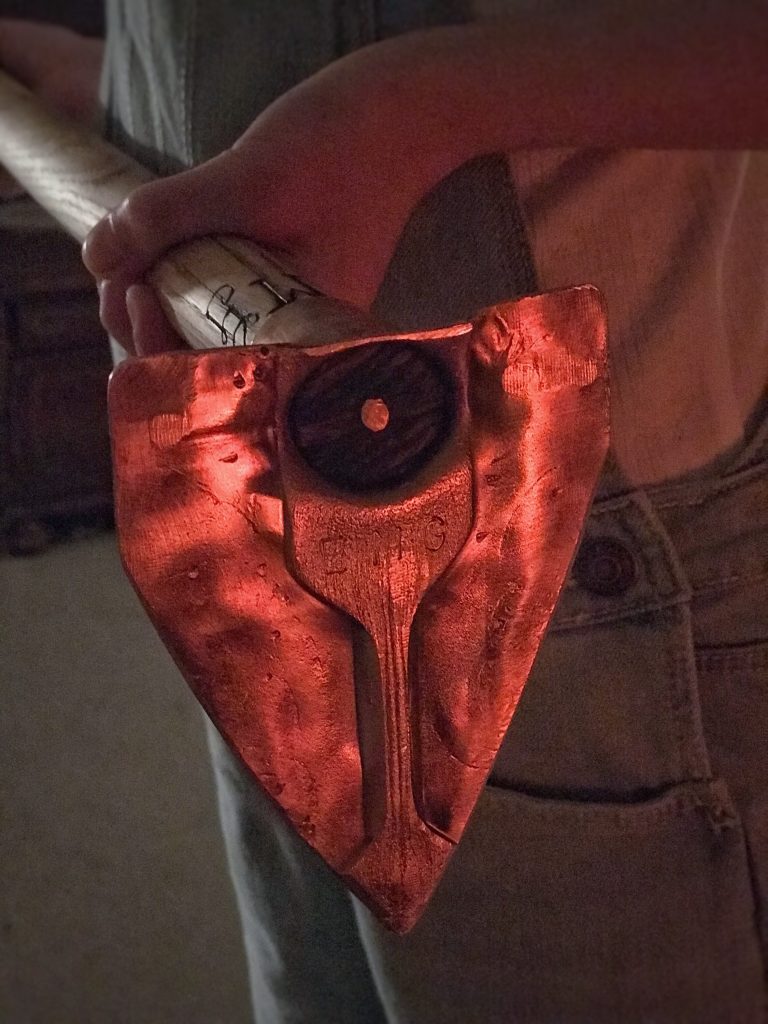
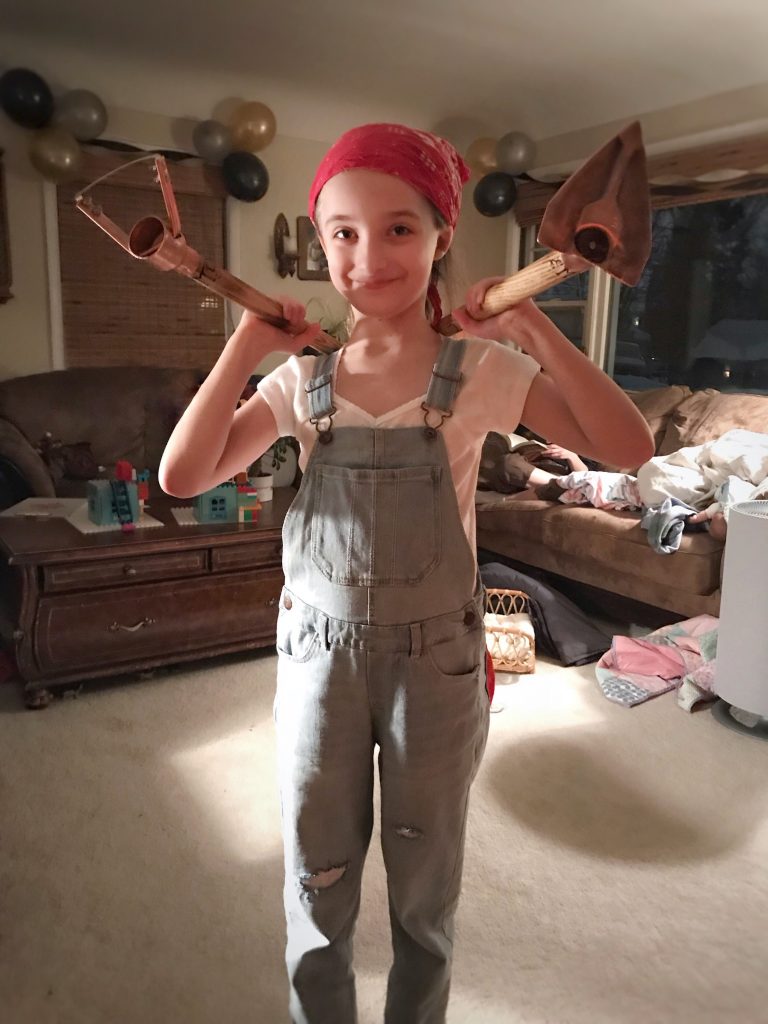
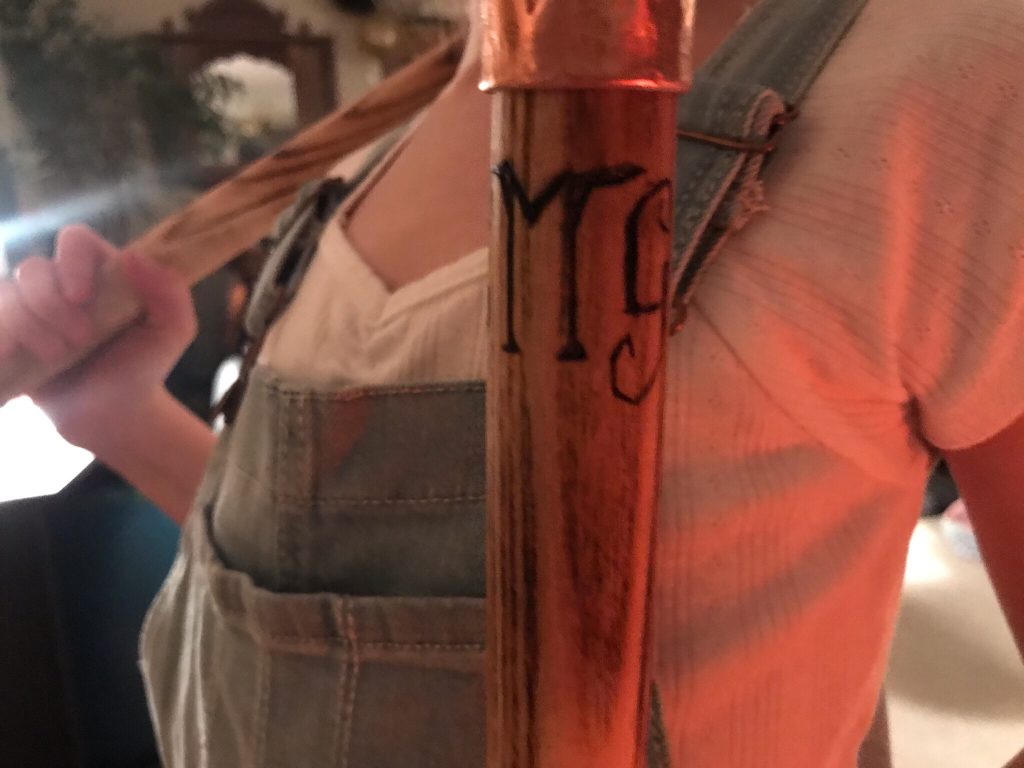
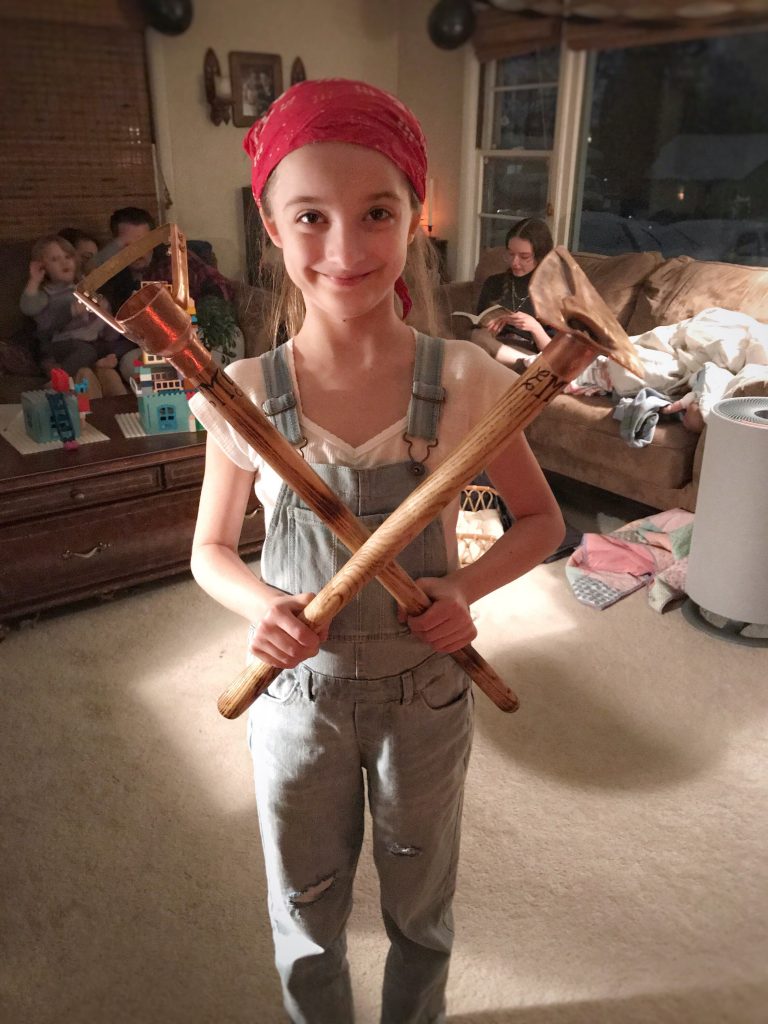
The Bears need copper tools to make their gardens flourish. Many tools were forged out of that treasure trove of leftovers, and we’ve had to buy most of this year’s supply to keep up with demand.
The first trowel had to go to Topher as a tribute to the legend for the inspiration, of course. Unfortunately, the prices of components prohibit keeping costs as low as we’ve wanted. We still keep it near cost for our Bear families, and thanks to them and the grace of God, we’ve grown in skill and productivity.
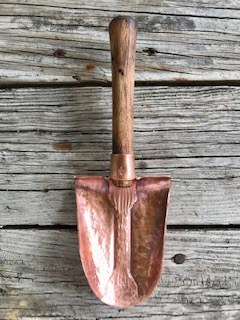
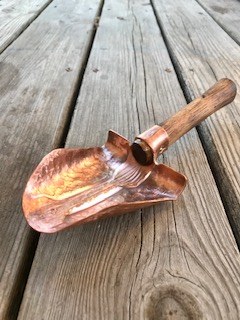
Now my hobby pays for itself, and a bit left over for the bee’s new boxes and some fresh paint this season.
Bee Alchemy helped me turn copper into liquid gold…
It was great meeting so many of you at the Festival!
God bless.
-

 Just Crushing2 weeks ago
Just Crushing2 weeks agoChristopher Gardner Completes First Dome Framing Project in Missouri: Exclusive Interview
-

 Just Crushing2 months ago
Just Crushing2 months agoBeartaria Ozark Campground Launches Community Forum!
-

 Just Crushing2 months ago
Just Crushing2 months agoMap it! – Discover Beartarians Living, Working, and Crushing Near You!
-

 Just Crushing2 months ago
Just Crushing2 months agoWhy Do We Feel So Free?
-

 Lifestyle2 months ago
Lifestyle2 months agoReconnect and Rejoice: Beartaria Times Weekly Challenge
-

 Reports2 months ago
Reports2 months agoReport: EF-1 Tornado Touches Down In The Ozarks
-

 Business2 months ago
Business2 months ago3000 Members In Our Business Group!: This Week On Our Community App!
-

 Wellness2 months ago
Wellness2 months agoBeartaria Times Member Shares History and Benefits of Haymaker’s Punch









